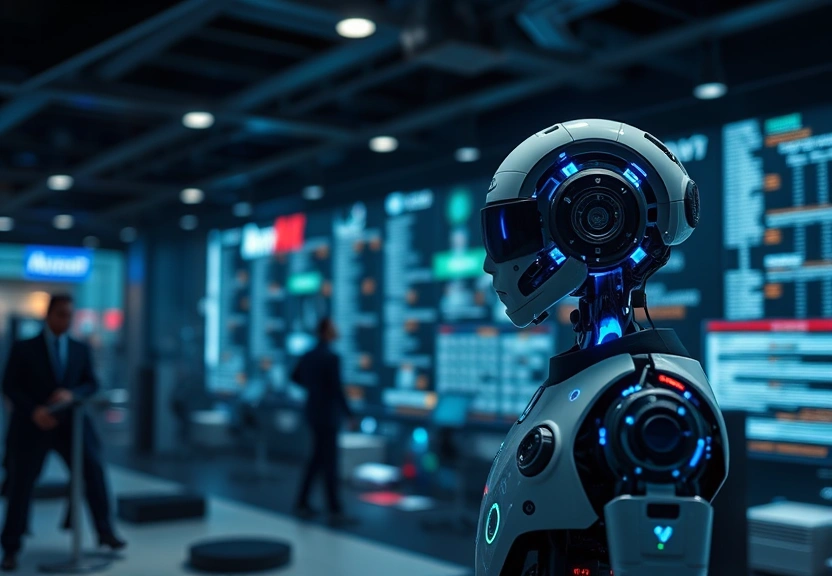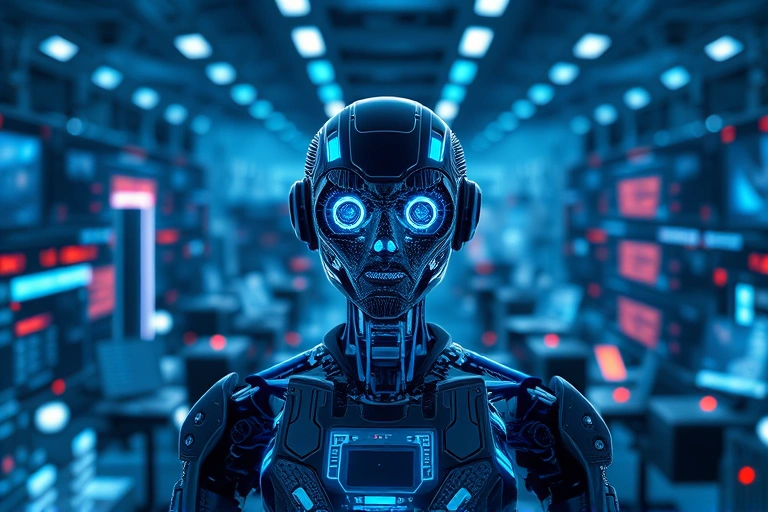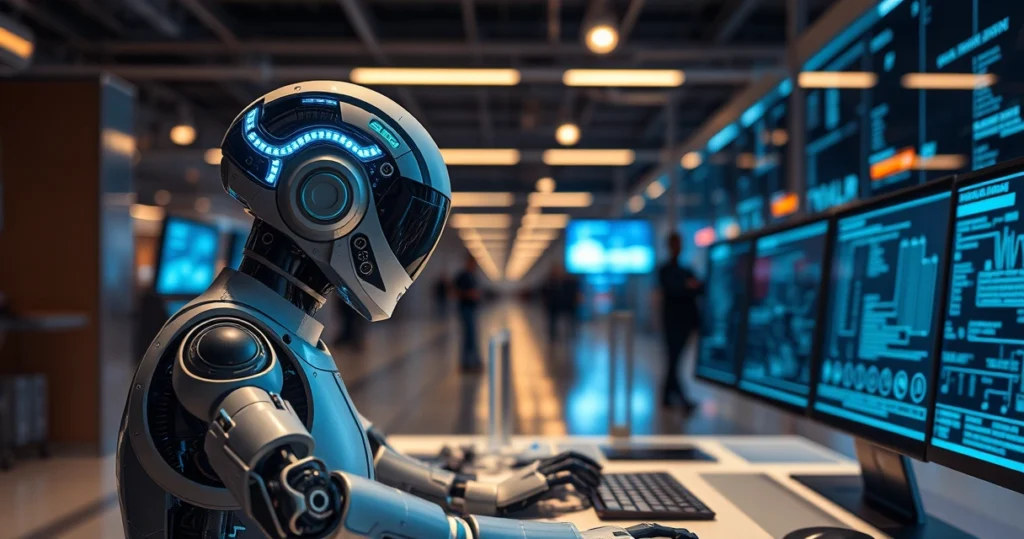AI Agents Revolution 2025: How Autonomous Artificial Intelligence Will Transform Every Industry
Introduction
The emergence of artificial intelligence (AI) has reshaped the landscape of several industries, and the expected advancements in AI technology by 2025 promise to bring about an unprecedented transformation. As we stand on the brink of this revolution, the role of AI agents is set to become pivotal. These autonomous entities will not only enhance operational efficiencies but will also redefine the nature of work itself. In this article, we delve into how AI in business will evolve, the implications for various sectors, and what the future of AI holds.

Main Development
By 2025, the integration of autonomous artificial intelligence will be ubiquitous across sectors, providing businesses with intelligent automation capabilities that were previously unimaginable. The concept of AI agents—software programs that can perform tasks without human intervention—will become commonplace. These agents will harness vast amounts of data to make decisions, predict outcomes, and optimize processes.
In manufacturing, for instance, AI agents will streamline supply chains by predicting demand fluctuations and adjusting inventories in real-time. This will reduce waste and enhance productivity, ultimately leading to cost savings. In healthcare, autonomous AI will assist in diagnostics, analyzing patient data with remarkable accuracy, and suggesting treatment plans tailored to individual needs.
Moreover, the financial sector will also experience a significant shift. AI agents will revolutionize trading by analyzing market trends and executing trades at lightning speed, far surpassing human capabilities. This level of AI transformation in industries will create new opportunities and challenges, pushing companies to adapt or risk obsolescence.
🎥Related video: AI Agents Revolution 2025: How Autonomous Artificial Intelligence Will Transform Every Industry
Analysis and Benefits
The anticipated advancements in AI technology have far-reaching implications for businesses. One of the primary benefits of adopting autonomous AI is the potential for enhanced productivity. By automating routine tasks, employees can focus on higher-level strategic activities that require creativity and critical thinking. This shift will not only improve job satisfaction but will also foster innovation.
- Cost Efficiency: Companies can reduce operational costs by deploying AI agents to handle repetitive tasks.
- Improved Accuracy: AI systems can analyze data with greater precision, minimizing human error.
- Scalability: Businesses can scale operations quickly without the proportional increase in workforce.
- Enhanced Customer Experience: AI agents can provide personalized services, improving customer satisfaction and loyalty.
However, the transition to a more AI-driven landscape is not without its challenges. Organizations must ensure that they have the right infrastructure in place to support these technologies. Additionally, ethical considerations regarding data privacy and the potential for job displacement must be addressed. The success of AI transformation in industries hinges on a balanced approach that considers both the benefits and the potential repercussions.
Practical Implementation
For businesses looking to implement AI agents 2025, a strategic approach is essential. Companies should begin by assessing their current processes to identify areas where AI can add value. This could involve automating customer service interactions, enhancing data analysis capabilities, or streamlining supply chain management.
Furthermore, investing in employee training and development is critical. As AI systems take over routine tasks, employees will need to adapt to new roles that leverage their human skills. Organizations should foster a culture of continuous learning, ensuring that their workforce is equipped to thrive in an AI-enhanced environment.
Collaboration with AI technology providers is also vital. By partnering with experts in the field, businesses can gain insights into the latest advancements and best practices, accelerating their journey towards AI integration. The importance of staying ahead in the rapidly evolving landscape cannot be overstated, as the impact of AI technology will only continue to grow.

Frequently Asked Questions
What are AI agents?
AI agents are autonomous software programs designed to perform tasks without human intervention. They leverage data and algorithms to make decisions, optimize processes, and enhance productivity across various industries.
How will AI transform industries by 2025?
By 2025, AI is expected to revolutionize industries by automating routine tasks, improving decision-making through data analysis, and enhancing customer experiences through personalized services. This transformation will lead to increased efficiency, reduced costs, and new business opportunities.
What are the benefits of using autonomous AI in business?
The benefits of incorporating autonomous AI in business include cost savings, improved accuracy, enhanced productivity, scalability, and a better customer experience. Companies can streamline operations and focus on strategic initiatives that drive innovation.
What challenges do businesses face when adopting AI technology?
Challenges include the need for appropriate infrastructure, addressing ethical concerns related to data privacy, and potential job displacement. Organizations must develop strategies to mitigate these risks while maximizing the benefits of AI integration.
How can companies prepare for the AI revolution?
Companies can prepare for the AI revolution by assessing their current processes for AI integration, investing in employee training, fostering a culture of continuous learning, and collaborating with AI technology providers to stay informed about the latest advancements.
Conclusion
The AI agents revolution 2025 represents a significant leap forward in how businesses operate and engage with their customers. The integration of autonomous artificial intelligence will not only enhance efficiency but also redefine the workforce landscape. As organizations navigate this transition, they must balance innovation with ethical considerations, ensuring that the benefits of AI are harnessed responsibly. The future of AI is bright, and adapting to these changes will be crucial for businesses aiming to thrive in an increasingly competitive environment. Embracing this revolution will position companies at the forefront of their industries, ready to tackle the challenges and opportunities that lie ahead.







